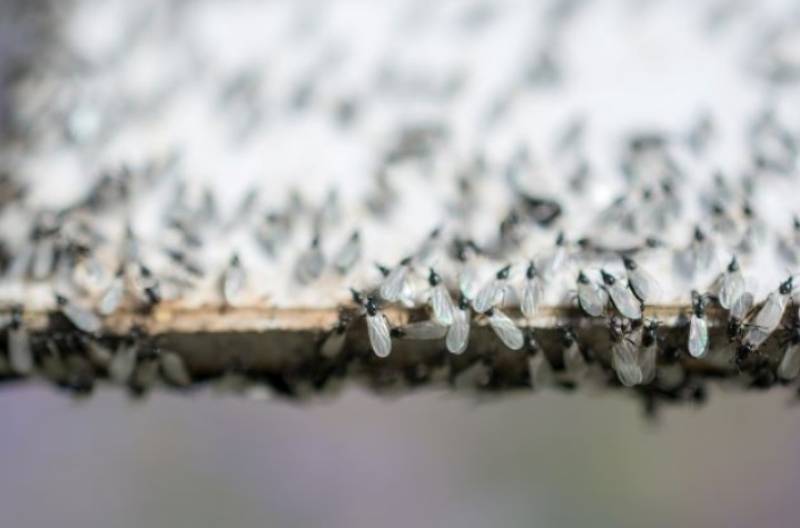- Region
- Vega baja
- Marina Alta
- Marina Baixa
- Alicante
- Baix Vinalopo
- Alto & Mitja Vinalopo
-
ALL TOWNS
- ALICANTE TOWNS
- Albatera
- Alfaz Del Pi
- Alicante City
- Alcoy
- Almoradi
- Benitatxell
- Bigastro
- Benferri
- Benidorm
- Calosa de Segura
- Calpe
- Catral
- Costa Blanca
- Cox
- Daya Vieja
- Denia
- Elche
- Elda
- Granja de Rocamora
- Guardamar del Segura
- Jacarilla
- Los Montesinos
- Orihuela
- Pedreguer
- Pilar de Horadada
- Playa Flamenca
- Quesada
- Rafal
- Redovan
- Rojales
- San Isidro
- Torrevieja
- Comunidad Valenciana
article_detail
Date Published: 13/10/2022
ARCHIVED - Alicante beaches and Murcia streets invaded by swarms of flying ants
Autumn temperatures and the first rains of the season have coincided with a proliferation of the flying bugs on the Costa Blanca and Costa Calida

Holidaymakers and residents alike were horrified to find beaches in Alicante and streets, homes and parks in Murcia overrun with swarms of flying ants this week, with one repelled Costa Blanca beachgoer claiming: "They look like a black blanket on the sand."
Whilst sunbathers were aghast at finding Alicante's beaches crawling with the flying critters, and Murcianos were left stunned at the sight of balconies, pavements and windows full of the bugs, experts have assured the flying ants appear every autumn or spring when it rains and it's part of their biological cycle.
"Having wings is part of the development they carry out to leave an anthill and to be able to find a new colony in another location,” the experts said.
A biologist told Spanish newspaper Informaction, that "the rain is a signal for them that they can start this biological cycle," and that the fact Alicante has experienced lower temperatures this week could explain the explosion of flying ants.
Conditions have been very similar in Murcia in recent days, which again has led to an exponential rise in winged ants in the city.
Most of these ants die - particularly the males - but those that manage to survive look for the right place to build a new anthill and will get rid of their wings to play the role of queen ant and bolster the species.
The reason this happens at this time of year is because the rain softens the soil and it is easier for them to build new nests.
Whilst being unsightly and a nuisance, the insects usually disappear within 24 to 48 hours of their proliferation, a week at the most. So, provided there is no further rainfall over the next few days, the explosion of flying ants in Alicante and Murcia should pass by next week.
Image: Archive
staff.inc.ali
Loading
Sign up for the Spanish News Today Editors Roundup Weekly Bulletin and get an email with all the week’s news straight to your inbox
Special offer: Subscribe now for 25% off (36.95 euros for 48 Bulletins)
OR
you can sign up to our FREE weekly roundup!
Read some of our recent bulletins:
Discount Special Offer subscription:
36.95€ for 48 Editor’s Weekly News Roundup bulletins!
Please CLICK THE BUTTON to subscribe.
(List price 3 months 12 Bulletins)
Read more stories from around Spain:
Contact Murcia Today: Editorial 000 000 000 /
Office 000 000 000


































